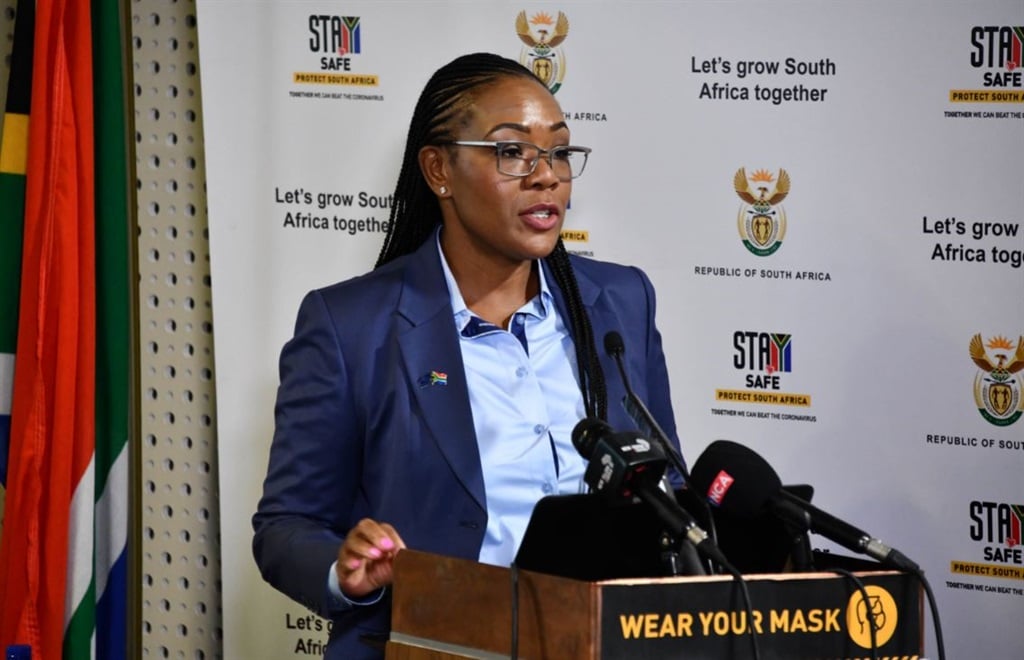
- Some of government's Covid-19 relief initiatives were abandoned and others didn't achieve the desired results, says the Auditor-General of South Africa.
- AGSA is concerned about the unfairness in awarding government business and insufficient protections against overpricing, financial loss, and fraud.
- The "journey of saving the precious rands that we do have requires swift and urgent action", Auditor-General Tsakani Maluleke told the Standing Committee on the Auditor General.
Some of the initiatives in government's multi-billion rand Covid-19 relief package were "abandoned or redirected", while others didn't achieve the desired results, said Auditor-General (AG) Tsakani Maluleke.
Furthermore, the Auditor-General of South Africa (AGSA) is, "... concerned about unfairness in the awarding of government business and that sufficient care is not taken to protect against overpricing, financial loss, fraud and abuse of the system".
Maluleke was presenting AGSA's second special report on the financial management of government's Covid-19 initiatives to the Standing Committee on the Auditor-General on Friday.
It is a high-level report which zooms in on specific instances of malfeasance. Maluleke said they audited 16 government initiatives that were part of the R500 billion support package.
Maluleke said the response to AGSA's first report has been generally positive, with authorities and accounting officers making good attempts to implement its findings.
The AG presented the following observations from the second report to the committee.
The multibillion-rand relief package funded the country's health response and provided social and economic relief. Most initiatives were completed or were close to completion, but some were abandoned or redirected.
The previous message on the risks created by rapid implementation in a compromised control environment remains relevant and the impact on the effectiveness of initiatives is now becoming apparent.
Some of the initiatives did not achieve the desired results and were even abandoned because of failed coordination, monitoring, and relationships across the three spheres of government.
Where implementing agents were used, the AGSA found weaknesses in coordination and monitoring which compromised delivery, transparency, and accountability.
Deficiencies
There were significant deficiencies in the procurement and contract management processes, and inadequate controls to ensure that payments were only made for goods and services that were delivered at the right time, price, and quality.
The AGSA was concerned about unfairness in the awarding of government business and that sufficient care was not taken to protect against overpricing, financial loss, fraud, and abuse of the system.
The information technology systems, processes, and controls used in government were not agile enough to respond to the changes required.
AGSA identified that the lack of validation, integration, and sharing of data across government platforms resulted in people, including government officials, receiving benefits and grants to which they were not entitled.
It recommended that government take a well-considered, coordinated, and centralised approach to address the legacy issues in the public sector information and communication technology environment.
AGSA identified indicators of potential fraud which have been reported to the fusion centre for investigation.
IFP MP Narend Singh said: "By now, I would have liked to [have] more public servants, not only public servants but private service providers too, in orange overalls."
Fusion
Maluleke said by providing the fusion centre - the coordinating body of law-enforcement agencies tasked with looking into Covid-19 related graft, comprising the Special Investigating Unit (SIU), State Security Agency, SA Revenue Service, the Hawks, and the Financial Intelligence Centre – quickly with information, investigations and the law enforcement agencies' processes would also proceed with greater speed.
"We ought to demand more swift action. Because, I think, the journey of saving the precious rands that we do have requires swift and urgent action and it requires greater collaboration between the different players in the system," Maluleke said.
In a statement released after the meeting, committee chairperson Sakhumzi Somyo said the committee welcomed the strides made by AGSA.
"The committee also appreciates the collaboration with the fusion centre, which will allow the office to coordinate with all state law enforcement institutions to prevent, detect and respond to allegations of corruption or related activities for the Covid-19 pandemic. The committee hopes that this collaboration will fast-track consequence management for those who have exploited the pandemic," the statement reads.
"The committee remains concerned that significant deficiencies in the procurement and contract management processes have been noted in this second special audit. The AG has also noted inadequate controls to ensure that payments are only made for goods and services that are delivered at the right time, price and quality. The AG also raised a concern about unfairness in the awarding of government business and that sufficient care is not taken to protect against overpricing, financial loss, fraud and abuse of the system."
